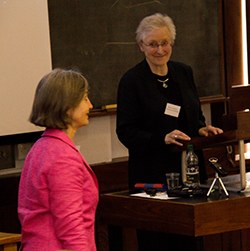Despite the extent to which the world's regions have become interconnected, access to knowledge and information continues to be a barrier to equitable and sustainable social development. Facing increasingly complex ecological-social challenges, local people need to be able to effectively assess, revalorize and mobilize their own knowledge, skills and traditions, and to adapt these by incorporating other forms of know-how, both local and scientific. We believe this process of exchange, within and between local groups, can be best facilitated by networks linking scientists and other researchers with an interest in local knowledge among themselves as well as with experts at the grassroots. This may also stimulate the creation of new interdisciplinary research projects and the development of new models for ethical exploitation of natural resources and commercialization of products originated from local knowledge.
Cambridge University has long established links with local experts in most parts of the world through research in natural sciences, social sciences and life sciences. These collaborative links, expeditions and projects often remain contained within departments or dedicated research teams. The EthnoBioNetwork aims to promote greater awareness of research related to local knowledge across the various Schools in the University and to provide a space in which not only information can be exchanged but also themes of common interest can be discussed in ad hoc seminars or broader symposia.
The Division of Social Anthropology is the hub of this forum that draws on previous and current research links in many parts of the world, with an extensive network connecting Cambridge scientists to colleagues in other universities both in Britain and abroad. A Steering Committee has been set up in order to coordinate the initial design and scope of the Network across the Schools. The concept has attracted interest from all the researchers who have been approached. It can be estimated that over 50 University members, not including research students, will take part in and benefit from EthnoBioNetwork. We plan to apply for formal recognition of the EthnoBioNetwork as a University-wide Network Initiative when the next round of invitations is issued from the University Strategy Office.

